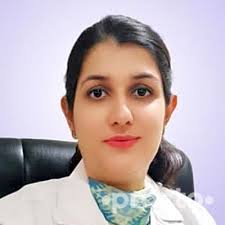
The Challenges of Late Pregnancy: Expert Insights on Fertility and Aging
With increasing prevalence of infertility and late pregnancies, questions about the impact of aging on fertility have become more pressing. Dr. Sabia Mangat, Consultant Gynecologist, Reproductive Medicine and IVF Specialist at Milann Fertility Center, Chandigarh, sheds light on this significant concern.
Fertility Peaks in Early Adulthood
According to Dr. Mangat, women typically reach their peak fertility between their early to mid-20s. "Women are born with a finite number of eggs, which steadily decline as they age," she explains. By puberty, the number of eggs reduces to approximately 3 to 4 lakh, and only a fraction of these are released during ovulation. The rest undergo atresia, a natural process where eggs degenerate and are absorbed by the body.
Decline in Fertility with Age
As women age, their fertility gradually decreases. Between ages 23 and 27, the chance of conception at any given time is about 25–30%. Fertility starts to decline around age 30, with a sharper drop after 35. Beyond the quantity and quality of eggs, aging can lead to hormonal imbalances, causing irregular ovulation and menstrual cycle fluctuations.
Risks Associated with Older Pregnancies
Dr. Mangat highlights that women over 35 face an increased risk of miscarriage, stillbirth, and complications like preeclampsia. Multiple pregnancies, which are more common in older age groups due to the release of multiple eggs, can raise the likelihood of preterm births. Additionally, chromosomal abnormalities in eggs can lead to genetic conditions in embryos.
Conditions such as placenta previa and gestational diabetes are more prevalent among women above 40, further complicating pregnancies. Older mothers are also more likely to require a cesarean section, which, while sometimes necessary, carries risks such as blood loss, infections, and challenges in subsequent pregnancies.
Maintaining Reproductive Health
While natural fertility cannot be restored, adopting a healthy lifestyle can help maintain reproductive health. Dr. Mangat advises women to avoid smoking and excessive alcohol consumption, engage in regular physical activity, and eat a balanced diet. For women planning pregnancies later in life, consulting a fertility expert can provide valuable insights into their reproductive health and help in planning conception.
By raising awareness about these challenges and promoting proactive health measures, Dr. Mangat emphasizes that women can make informed decisions about their reproductive health and well-being.